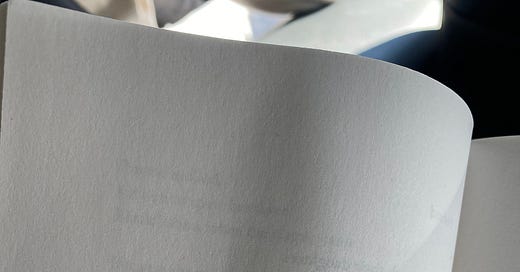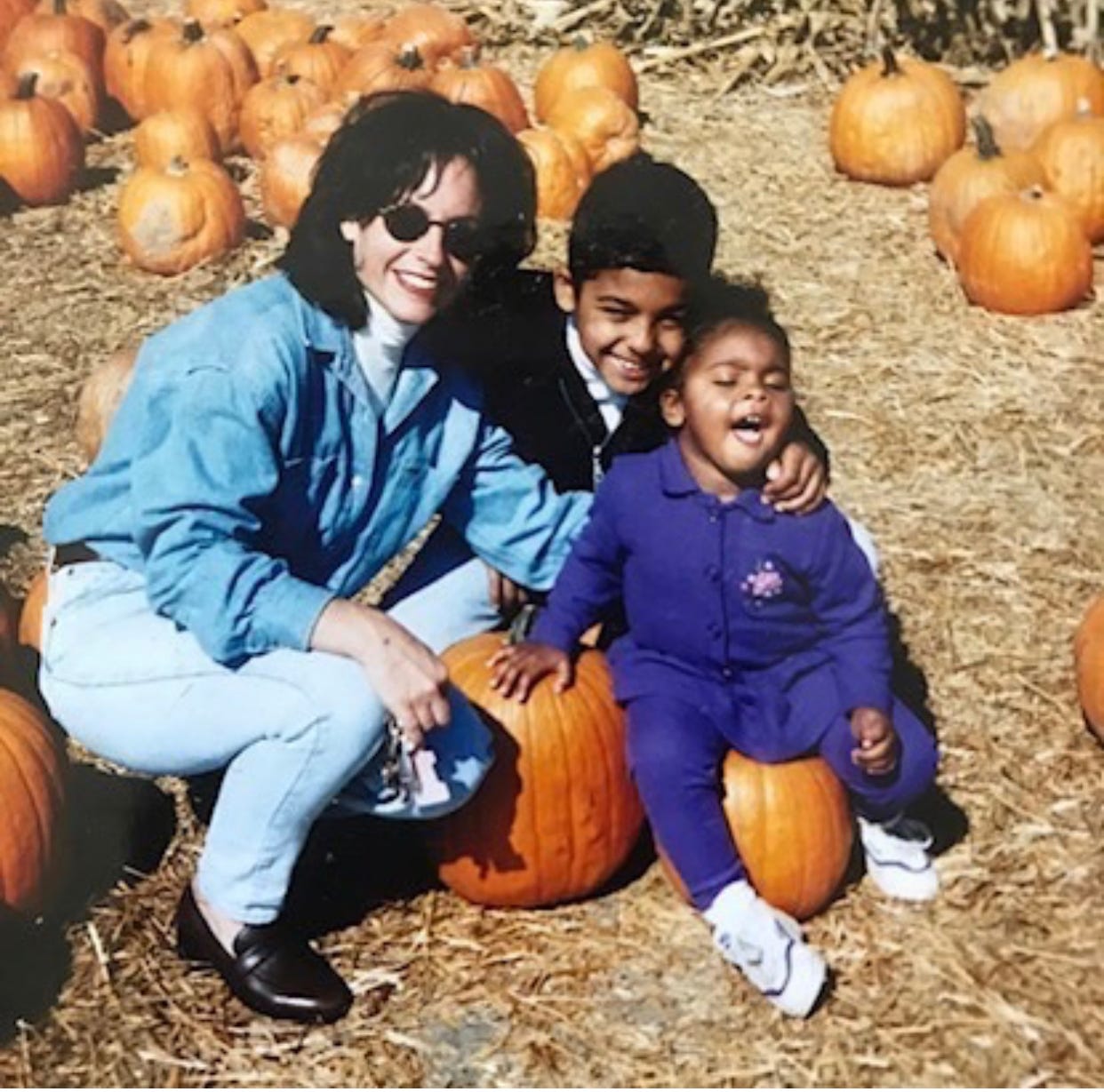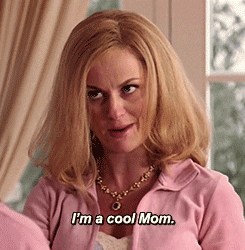In replacement of today’s advice column, for which I have received dozens of submissions referencing the complications of having a mother and mothering ourselves, with or without saying the word mother at all - it seems more poignant to talk about mothers and children and how we are all both.
If you are mourning a mother for reasons of passing, absence, neglect, and self-care, I’m with you. If you are challenged with the celebration of today for any reason, I am with you.
Dr. Kahlil Gibran says:
Your children are not your children. They are the sons and daughters of Life's longing for itself.
Children are life persisting. They are not tools for reenactment of our lost interests, desires, and longing for what we were not allowed, brave, or motivated enough to achieve. Mothers are tasked with discernment of their child’s will and shepherding that will into destiny and actualization. And yet, most mothers have barely had their will shepherded into actualization themselves.
My mother as a person
I distinctly remember when I started to carry two perceptible relationships with the same woman - my mother. There exists a relationship with my caretaker, her specialty brand of nurturing baked into my DNA to become the template for love; and another relationship requiring a far more delicate touch and far greater grace with the person my mother is outside of motherhood who is complex, wounded, and wanting for a life beyond me. Not the superhuman with the ability to fix any problem, cure any ailment, and nurse any wound, but in fact a survivor of her own and often a perpetrator of mine.
She didn’t stop being a person because I claimed her body, mind, and spirit as a vessel for need fulfillment - and I do believe I chose my mother for reasons that cannot be described by matters of the third dimension. Who she was continued to be reborn over and over again through raising me even when she couldn’t mother herself, even when she forgot there was a child still needing to be held, comforted, and vulnerable within. Even when she isolated, abandoned, and forgot the innocence of me as she did herself while providing for necessities and physical needs.
My mom was a strong provider carrying a household alone. She became a mother before her will was actualized, and she never forgot it. She was the cool mom - she was smokin’ hot, open with questionable boundaries, about her business, the definition of magnetic and my biggest cheerleader. She was also making choices that would make me feel unlovable for 20 years, which I would not be able to admit until months of aggressive therapy. So much of my worthiness was defined by having a mom who loved me. If she didn’t love me well, then who would? The complicated reality is that all of this is true - I had a great mom. I had a shitty mom. I had a mom who loved me beyond imagination, including in ways that were harmful. And I would be worthy more even if it was her best.
She is the person who I loved first. Before I had a fully formed beating heart, consciousness, or breath - I loved her. This love became the lens through which I understood humanity including my own. In many ways, I mothered her as she mothered me, and through motherhood we have been awakened together. There were moments she was my best friend and I was hers, and I’ve come to realize I only ever really wanted a mother, and so I’ve had to provide that mother with no disrespect to the vessel who birthed me and in full belonging of what I deserve.
What is mother spirit?
Motherhood is defined simply by the Oxford dictionary as the collective qualities or spirit of mother. How does someone from a motherless home define it? How does someone with a mother without a mother spirit define it? When your mother resents you and mourns the inner child she left hungry in a closet to feed her own physical children, from which well do you dip to provide for yourself and community? Who is a mother if not just someone who gives birth? Because we know despite the complexities of human nature, we have persisted and it has been by the labor and ever-expanding grace of mothers of every kind.
We are all both mother and child. Some mothers have children, are yearning for children, have lost children, and all are experiencing life while tending to their inner children simultaneously. Children are often mothers, caring for their mothers, and mothering themselves. Motherhood as an adjective is having or relating to an inherent worthiness, justness, or goodness that is obvious or unarguable. “I do because I am worthy by virtue of being human who needs care,” is the new framework for loving myself. There is an inherent worthiness in expanding our definitions of motherhood beyond tradition, and calling in our own mothers to show up for that expansion.
Many of us have complicated relationships with mothers who were perfectly loving in every fathomable way they understood love, even if insufficient. Who made the sacrifices their mothers told them mothers make. Who said the things their mothers told them mothers say. Who gave us their world - even if their worlds were small, raptured, tormented, and reflective of loveless dynamics. Who struggled to hold their own personhood and the fine balance of our fragile development with just two hands. Who sought the friends they lost in transitioning to motherhood in the children themselves. Who mothered even if they were sisters, friends, friends’ mothers, aunts, grandmas - who took one look at a child in need of care and said “I choose you.”
Today, I’ve noticed so many more posts than any year in my recollection honoring the complexities of motherhood. We should grant motherhood and parenting a more generous definition - one that includes space to be raised by community, by a village, by ourselves. Mothers are not always found in the person who carried you by body, but who carried you by heart and strength and enduring kindness. Mothers are sometimes never found at all in anyone outside of yourself, or to the fullest capacity you need unless you provide and give care to yourself.
There’s a lot of societal pressure to ignore harm inflicted by our parents because it makes folks uncomfortable to admit unconditional love is not guaranteed by anyone but is a choice we are all held accountable for. Because “we only have one, there’s limited time on this earth” blah blah blah. This is nonsense - it is a tragedy to be mothered by a broken person. It is a tragedy to lose a mother, even not-so-good mothers. It is a tragedy to not be mothered at all, and we are responsible for honoring the hurt by creating an honest, and beautiful mourning. To see ourselves outside and beyond how we weren’t loved and discover how we can be, to be more compassionately, more kindly, more fully, more fruitfully nurturing with ourselves and others. To reach out into the world toward folks who will find us at love’s meeting place.
Here are some things I’ve learned about caregiving as a child-less caregiver:
When you go to therapy and start healing, everything is about your mom. Healing is learning how to mother yourself.
Denial of your mom’s shortcomings will only prevent you for providing for yourself the way she cannot.
Mothering yourself can look like going to bed early because you’re cranky, remembering to eat breakfast in the morning, say no when you mean no.
Eldest daughters of any family unit should be provided free therapy.
Caregiving is best when received and provided widely and abundantly. Expecting all needs to be fulfilled in one primary person is fantasy.
Care is community. Community is care.
Interrogating, re-evaluating and integrating new definitions of love into your life is necessary to be cared for safely and beautifully.
Caregivers practice self-care religiously because they understand that mothering oneself is mothering community and of service to others.
Caregiving requires trust in others to hear your needs and show up for them.
Motherhood is constant mourning, for what you tend will grow beyond needing you.
Motherhood is whatever we need it to be.










